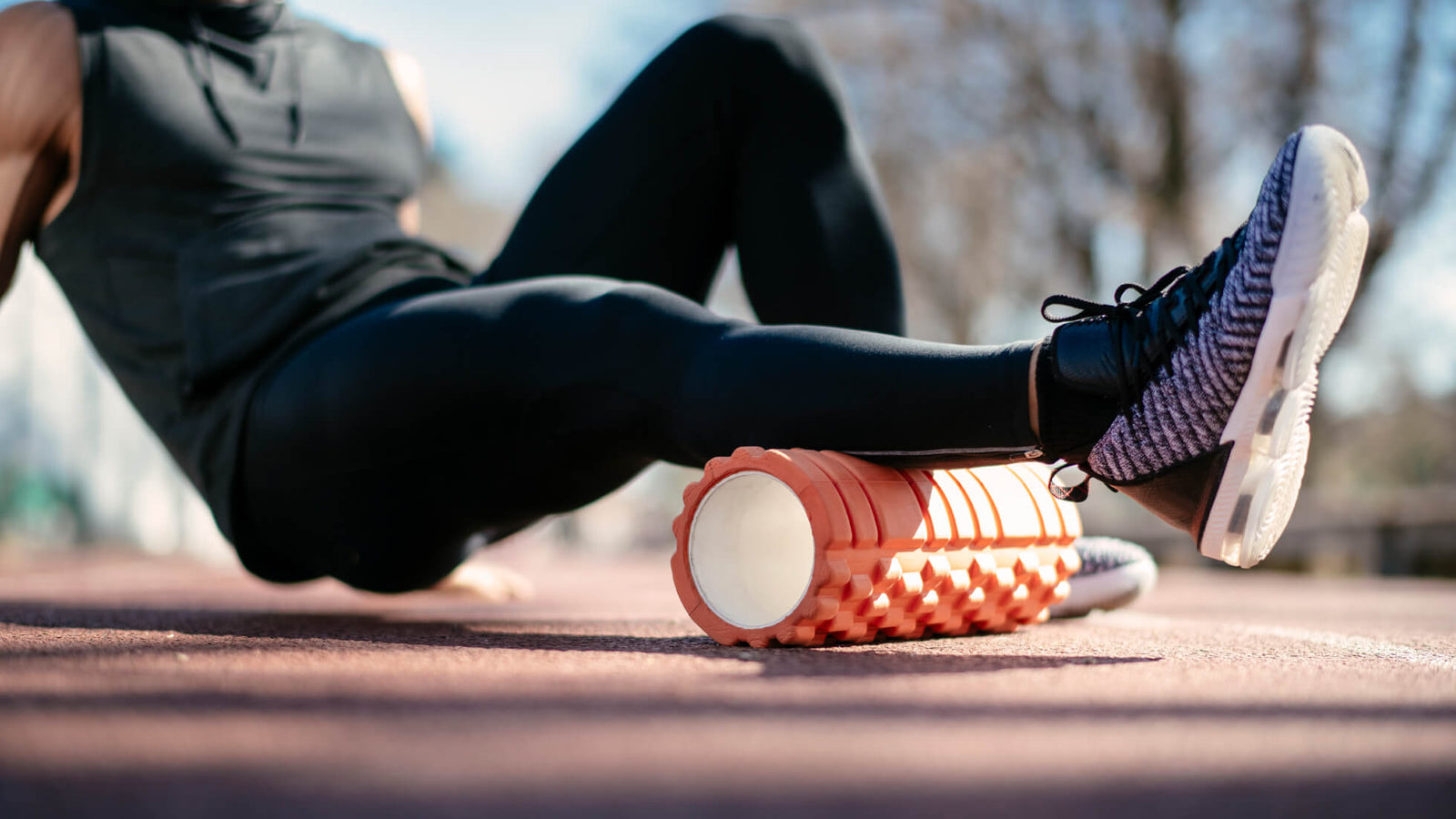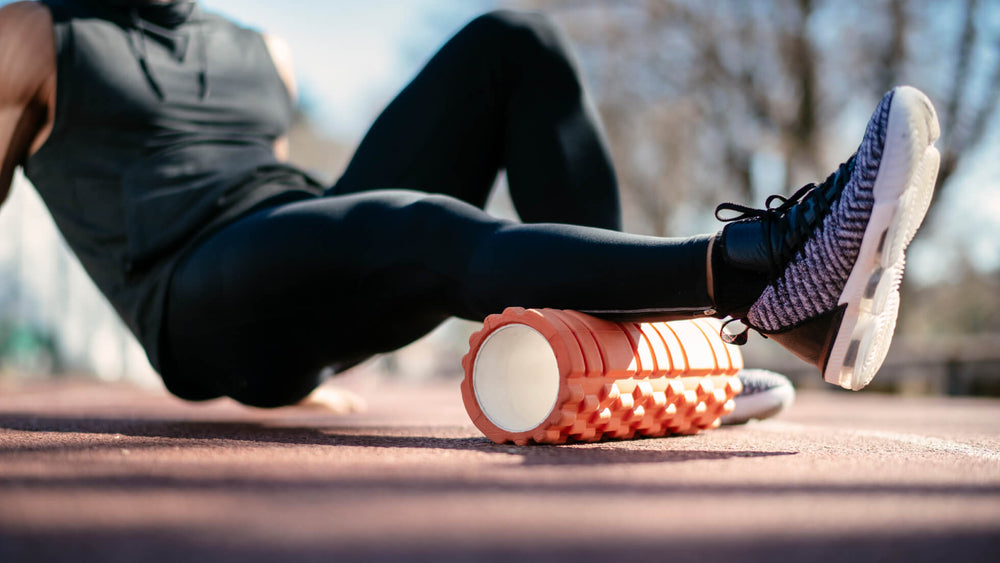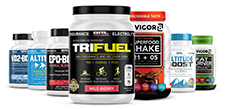Foam Rolling for Faster Recovery and Injury Prevention

One simple yet highly effective tool that should be a staple in every endurance athlete's routine is the humblefoam roller. Whilefoam rolling may seem like just another fitness fad or pointless gadget, it offers a wealth of scientifically-backed benefits that can significantly enhance your recovery, performance, and injury resilience.
Jump Start YourMuscle Recovery
One of the primary benefits offoam rolling is its ability to enhancemuscle recovery after intense training sessions. The repetitive rolling motion applies gentle pressure and friction to the muscle tissue, which helps break upadhesions, flush out lactic acid, and increaseblood flow to the area.
This increased blood flow delivers more oxygen and nutrients to the muscles, accelerating the repair and regeneration process. Studies have shown thatfoam rolling can significantly reducepost-exercise muscle soreness and stiffness, allowing you to bounce back faster and train harder in your next session.
To be honest, foam rolling when you’re sore usually doesn’t feel great in the moment, but powering through and digging into the tightest spots will pay dividends in the long run.
Fix Your Flexibility and Mobility
Foam rolling doesn't just target the muscles — it can also improve the pliability and mobility of yourconnective tissues, includingfascia, tendons, and ligaments. You’ll often hear this described asmyofascial release. By rolling over these structures, you're able to break down restrictions andadhesions that can limit yourrange of motion and increase your injury risk.
Improved flexibility and joint mobility translate to better movement quality, more efficient biomechanics, and a reduced likelihood of strains or sprains. This is particularly crucial for endurance athletes who rely on smooth, economical movement patterns to power through long training sessions and grueling races. Long story short, it’s a great tool to work into your typicalwarm-up routine along with some gentlebody weight exercises.
Address Muscle Imbalances
Another key benefit offoam rolling is its ability to identify and address muscle imbalances. Like most endurance athletes, you likely rely heavily on certainmuscle groups while neglecting others, leading to strength and flexibility imbalances. One common one is runners and cyclists pulling/pushing from their quads rather than their glutes, which can lead to all kinds of issues.
Byfoam rolling the entire kinetic chain (that’s from your feet to your hips) you can identify areas of tension or restriction and target them accordingly. This helps restore balance, improve posture and body alignment, and optimize your movement efficiency.
Keep Injuries at Bay
Perhaps one of the most significant advantages of incorporatingfoam rolling into your routine is its potential to reduce your risk of injury. By improvingmuscle recovery, flexibility, and balance,foam rolling creates a strong foundation that helps your body withstand the rigors of endurance training.
Studies have shown that regular foam rolling can decrease the incidence of common overuse injuries likeIT band syndrome, plantar fasciitis, and patellofemoral pain. It can also aid in the rehabilitation and prevention of more acute injuries, such as sprains or strains.
Your Mental and Emotional Well-Being Toolkit
While the physical benefits of foam rolling are well-documented, it's important to recognize the mental and emotional aspects as well. Endurance training can be incredibly taxing, both physically and psychologically, and the act offoam rolling can serve as a valuable self-care ritual.
The rhythmic rolling motion, coupled with the release of muscle tension, can have a calming, meditative effect — similar to an athletic massage. This can help reduce stress, promote relaxation, and enhance your overall sense ofwell-being, all of which contribute to better training quality and recovery.
Incorporating Foam Rolling into Your Routine
Now that you understand the impressive array of benefits thatfoam rolling offers, the next step is to incorporate it into your training and recovery routine. Use these tips to get the most out of yourfoam rolling sessions:
- Timing: Aim to foam roll before and after your training sessions, as well as on your rest days. This will help prepare your body for the upcoming workout and facilitate recovery afterward. If you struggle to fit it in, pick something you like (like watching TikTok or listening to your favorite podcast) and earmark it for “rolling time” to give yourself a little reward.
- Technique: Slowly roll back and forth over the targetmuscle group, applying moderate pressure. Avoid rolling over bony prominences or areas of acute pain.
- Duration: Spend 1–2 minutes per muscle group, focusing on any tight ortender spots. Increase the duration as needed, especially for largermuscle groups.
- Variation: Incorporate different foam rolling techniques, such as cross-friction rolling or targeting specifictrigger points, to addressspecific areas of tension or restriction.
- Mindfulness: Approach your foam rolling sessions with intention and presence. Pay attention to your breathing and any sensations in your body to maximize the mental and emotional benefits.
By making foam rolling a consistent part of your training and recovery routine, you'll not only bounce back faster from hard efforts but also significantly reduce your risk of injury. Invest in a quality foam roller and treat it like a daily task like brushing your teeth or taking out the recycling to maximize the benefits.
Take the next step in your training regimen: Try any BRL Sports supplement risk-free! If our natural nutritional products aren’t the best you’ve ever used, simply return your purchase for a 100% refund — no questions asked!
Also in Inspiration & Perspiration

High Altitude Supplements: Complete Guide to Training & Prevention (Altitude Sickness Solutions)
Support endurance and reduce altitude stress with supplements that improve oxygen efficiency, stamina, and recovery in high-altitude conditions.

Best Supplements For Runners: Complete Guide By Training Phase (Base, Peak, Taper & Race Day)
Discover the best supplements for runners by training phase—base, peak, taper, and race day—to boost endurance, recovery, and performance.

Creatine for Endurance vs. Sprint Efforts
Creatine isn’t just for power—learn how it boosts sprint speed, recovery, and endurance performance.


